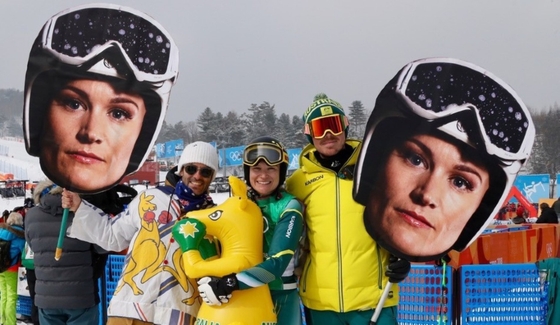
Q&A with Associate Professor Monique Kilkenny
Associate Professor Monique Kilkenny is a Heart Foundation Future Leader Fellow at Monash University. She is the head of the National Stroke Data Linkage Program, and her research aims to optimise outcomes to benefit Australians. She hopes to use this data to monitor healthcare quality and improve outcomes for people who survive a stroke.
What are you currently researching?
Stroke is a leading cause of disease burden in Australia and around the world. In 2020, there were approximately 8,200 deaths from stroke in Australia. This is around 22 deaths a day. People who have survived stroke often live with disability as a result. People who have had one stroke are also at greater risk of having another. However, with close monitoring of risk factors, medicines and lifestyle changes, this risk could be reduced. The financial cost of stroke in Australia is high, which means strategies to prevent and manage stroke are urgently needed.
My research project aims to combine big data systems within Australia to improve their use in stroke prevention and care. My project will provide:
- urgently needed evidence to reduce poor outcomes (e.g. disability and deaths from stroke)
- important new collaborations with doctors for the prevention of stroke in the community
- support for health services to build capacity in stroke prevention and management
- more data linkage research via PhD and postdoctoral mentoring.
What difference will your research make to people’s cardiovascular health in Australia?
My research will generate evidence related to the use of medicines in the prevention of stroke, and the management of relevant risk factors in the community. The aim of my research is to improve monitoring of stroke care and management to reduce death and disability from stroke.
What motivated you to do your research?
My passion for research in stroke stemmed from the personal experiences of my friends and family. I have firsthand experience of the physical and emotional challenges that stroke survivors experience in both the short- and long-term.
My vision is to prevent stroke, improve stroke care and achieve positive outcomes for people who have had a stroke. I am the Head of the National Stroke Data Linkage Program and the projects I lead are important in preventing stroke and monitoring the quality of care provided to people.
Are there any achievements or discoveries from the past year you can share with us?
In my recent research using linked data from the Australian Stroke Clinical Registry, Pharmaceutical Benefits Scheme, Medicare, and the National Death Index, we found important evidence that links long-term use of preventative medicines to higher chance of survival after first-ever stroke.
We also found evidence that suggests the best survival benefits occur when these medicines are used correctly 100 per cent of the time. These findings support strategies to maximise consistent use of medicines after stroke. For example, the use of reminder systems that alert people when their medicine is due.
What role has Heart Foundation funding had in your career journey?
The support from the Heart Foundation allows me to explore ways to improve the use of medicines in stroke prevention. This funding also enables me to advance my research career and build capacity in heart disease and stroke research.
Do you have a message for Heart Foundation supporters?
Thank you to all the Heart Foundation donors for your ongoing support for heart disease and stroke research programs like mine.
You might also be interested in...

Associate Professor Monique Kilkenny
National Stroke Data Linkage Program: Using data to improve stroke monitoring, care and outcomes

Where your funds go
Every donation to the Heart Foundation helps in the fight against heart disease, which is the number one killer of Australians.

Aiming high after a stroke
Sami Kennedy-Sim is an Olympic freestyle skier who has represented Australia in two Winter Olympics. In 2018, she underwent a procedure to close the hole in her heart.
Last updated09 January 2026